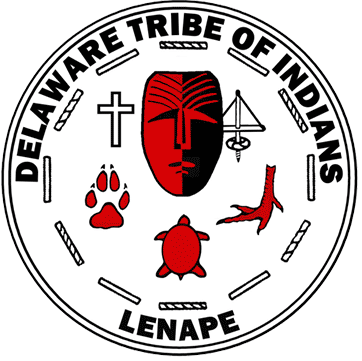
Lenape Talking Dictionary
By English WORD or PHRASE
By Lenape WORD or PHRASE

By English WORD or PHRASE
By Lenape WORD or PHRASE
Alënixsitàm!
Let's Talk Lenape!
Lesson #8
More Kinship Terms:
In lesson 7 we discussed some basic kinship terms and here
are some more:
Note: All the following terms for brother or sister
are also used for cousins of all degrees.
The ones ending with an exclamation mark (!) are vocative forms used in speaking to your relative:
Older
Brother -(na)xans
 naxans my
older brother
naxans my
older brother
 kxans
[
kxans
[ kënaxans] your older brother
kënaxans] your older brother
 xònsa his/her
older brother
xònsa his/her
older brother
 xansa Older
brother!
xansa Older
brother!
Older
Sister -mis
 nëmis my
older sister
nëmis my
older sister
 këmis your
older sister
këmis your
older sister
 mwisa his/her
older sister
mwisa his/her
older sister
 mësa Older
sister!
mësa Older
sister!
Younger
Sibling (Brother or Sister) -(na)xisëmës
 naxisëmës my
younger brother or sister
naxisëmës my
younger brother or sister
 kxisëmës [
kxisëmës [ kënaxisëmës] your
younger brother or sister
kënaxisëmës] your
younger brother or sister
 xwisëmësa his/her younger brother or
sister
xwisëmësa his/her younger brother or
sister
 xisëmësa ~
xisëmësa ~  xata ~
xata ~  xatash
~ xatas Younger
brother! or Younger sister!
xatash
~ xatas Younger
brother! or Younger sister!
Aunt -kahètët
(literally: “little mother”)
 nkahètët my aunt
nkahètët my aunt
 kahètët your aunt
kahètët your aunt
 kohètëta his/her aunt
kohètëta his/her aunt
 kahèti ~
kahèti ~  nkahèti Aunt!
nkahèti Aunt!
Uncle -shis
(mother’s brother only)
 nshis my mother’s brother
nshis my mother’s brother
 kshis your mother’s brother
kshis your mother’s brother
 wshisa his/her mother’s
brother
wshisa his/her mother’s
brother
 shësa Mother’s brother! Uncle!
shësa Mother’s brother! Uncle!
Uncle -uxtët
(father’s brother only) (literally: “little father”)
 nuxtët my father’s brother
nuxtët my father’s brother
 kuxtët your father’s brother
kuxtët your father’s brother
 uxtëta his/her father’s brother
uxtëta his/her father’s brother
 nuxtëta Father’s brother! Uncle!
nuxtëta Father’s brother! Uncle!
Grandchild -uxwis
(male or female)
 nuxwis my
grandchild
nuxwis my
grandchild
 kuxwis your
grandchild
kuxwis your
grandchild
 uxwisa his/her
grandchild
uxwisa his/her
grandchild
 nuxwiti Grandchild!
nuxwiti Grandchild!
And
one strange Lenape kin term:
 nuxwisxàm my
child’s pet (literally: “my grandchild animal.” Mainly used when speaking of a dog.)
nuxwisxàm my
child’s pet (literally: “my grandchild animal.” Mainly used when speaking of a dog.)
Imperative Forms:
Some of the
verb forms are classed as Imperative which often means they are a command but
depending on how they are said they could also be considered as a request.
All Delaware verbs are built around a ROOT, which carries
the basic meaning of the verb. A
verbalizing suffix is added to the root to form a
VERB +
-0 =
VERB him or her.
 Mil Give
him/her
Mil Give
him/her
The imperative form for, VERB me, could be written as
VERB +
-i =
VERB me
 Mili Give
me
Mili Give
me
And the imperative form for, VERB us, could be written
as:
VERB +
-inèn =
VERB us
 Milinèn Give us
Milinèn Give us
 Mili në shukël. Give me the sugar.
Mili në shukël. Give me the sugar.
 Mili në ahpon Give me the bread.
Mili në ahpon Give me the bread.
You can also
say:
 Mili ahpon Give me some bread.
Mili ahpon Give me some bread.
 Mil ahpon Give him some bread.
Mil ahpon Give him some bread.
Other
examples:
 Wichëm Help
him
Wichëm Help
him
 Wichëmi Help
me
Wichëmi Help
me
 Wichëmikw Help
me, you people
Wichëmikw Help
me, you people
 Wichëminèn Help
us
Wichëminèn Help
us
 Witkèm Dance
with him/her
Witkèm Dance
with him/her
 Witkèmi Dance
with me
Witkèmi Dance
with me
 Witkèmikw Dance with me, you people
Witkèmikw Dance with me, you people
 Witkèminèn Dance with us
Witkèminèn Dance with us
These forms might be useful to you:
 xàm Feed him
xàm Feed him
 xami Feed me
xami Feed me
 xamikw Feed me, you people
xamikw Feed me, you people
 xaminèn Feed us
xaminèn Feed us
In Lenape it is often common to use a verbal form which
includes the noun which it is built around.
An example might be taking the word,  Alukwèpi = Hat, and using it in a verb.
An example would be:
Alukwèpi = Hat, and using it in a verb.
An example would be:
 alukwèpisu
He is wearing a hat
alukwèpisu
He is wearing a hat
Another example using a word that we have already had is
the word,  Hèmpës = A shirt or a dress. In Lenape you can combine different word
elements into a single word because Lenape is what linguists call a
polysynthetic language.
Hèmpës = A shirt or a dress. In Lenape you can combine different word
elements into a single word because Lenape is what linguists call a
polysynthetic language.
If we take the prefix Aon- which
means, Blue, we can combine it with the Lenape word for a shirt or a dress and
make it is:

And
it can be made into a verb:
 aonhèmpse She is wearing a blue dress, or He is wearing a blue shirt
aonhèmpse She is wearing a blue dress, or He is wearing a blue shirt
You might think that it is confusing whether that can
mean a shirt or a dress and wonder why it can be used that way. Remember that at the time the Lenape people
adopted the word Hèmpës their clothing was made of deerskin so this was
somewhat of a catchall term for something made of cloth. If you have to be specific in Lenape about it
being for a man you can say:
 lënuwahèmpës A man’s shirt
lënuwahèmpës A man’s shirt